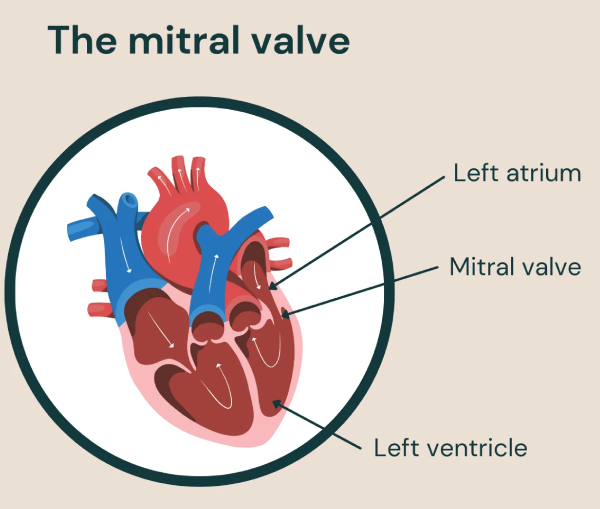Mitral Valve Prolapse
Mitral valve prolapse is a type of heart valve disease that affects the valve between the left heart chambers. The flaps (leaflets) of the mitral valve are floppy. They bulge backward (prolapse) like a parachute into the heart's left upper chamber as the heart squeezes (contracts).
Mitral (MY-trul) valve prolapse sometimes causes blood to leak backward across the valve, a condition called mitral valve regurgitation. The mitral valve separates the two chambers (atrium and ventricle) of the left side of the heart. In mitral valve prolapse, the leaflets of the mitral valve bulge (prolapse) into the left atrium like a parachute during the heart's contraction. Sometimes mitral valve prolapse causes blood to leak back into the atrium from the ventricle, which is called mitral valve regurgitation.
Usually, mitral valve prolapse isn't life-threatening and doesn't require treatment or lifestyle changes. But some people may need medications or surgery, especially if the prolapse causes severe regurgitation.
Mitral valve prolapse symptoms can vary widely from one person to another. Many people with mitral valve prolapse don't have noticeable symptoms. Other people may have mild symptoms that develop gradually.

Why it’s done?
Signs and symptoms of mitral valve prolapse are due to the amount of blood leaking backward through the valve. Symptoms of mitral valve prolapse may include:
- A racing or irregular heartbeat (arrhythmia)
- Dizziness or lightheadedness
- Difficulty breathing or shortness of breath, especially during exercise or when lying flat.
- Ebstein anomaly
- Ehlers-Danlos syndrome
- Muscular dystrophy
If you have symptoms of mitral valve prolapse, make an appointment with your health care provider. Many other conditions can cause similar symptoms.